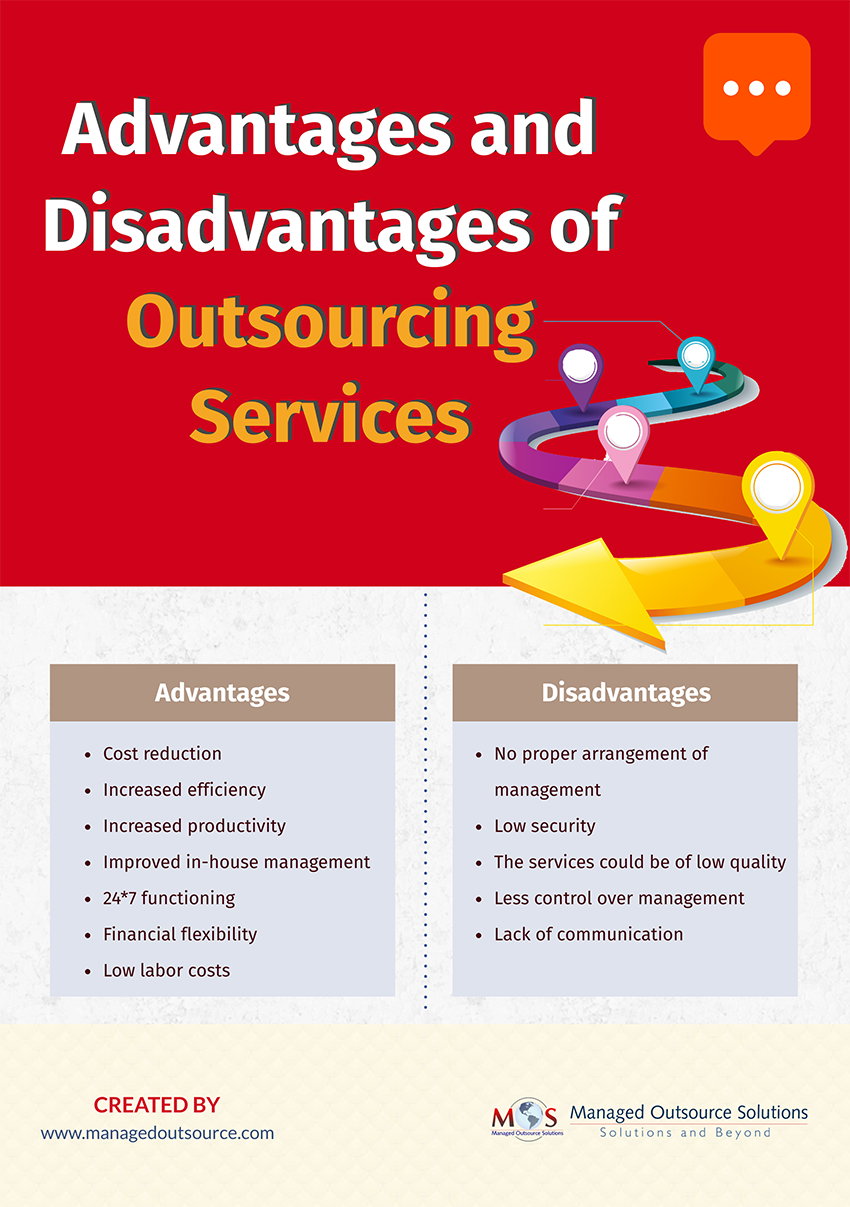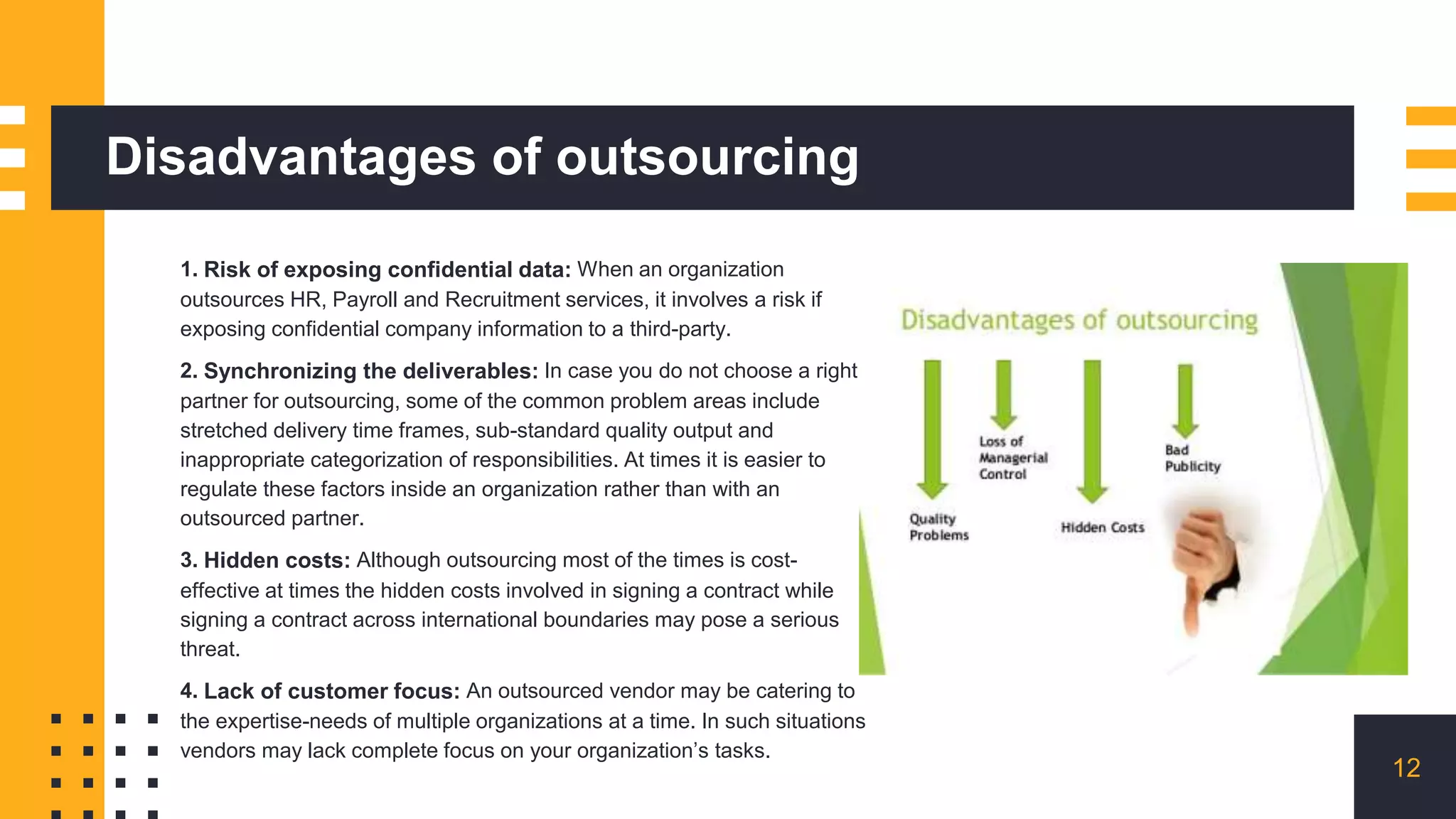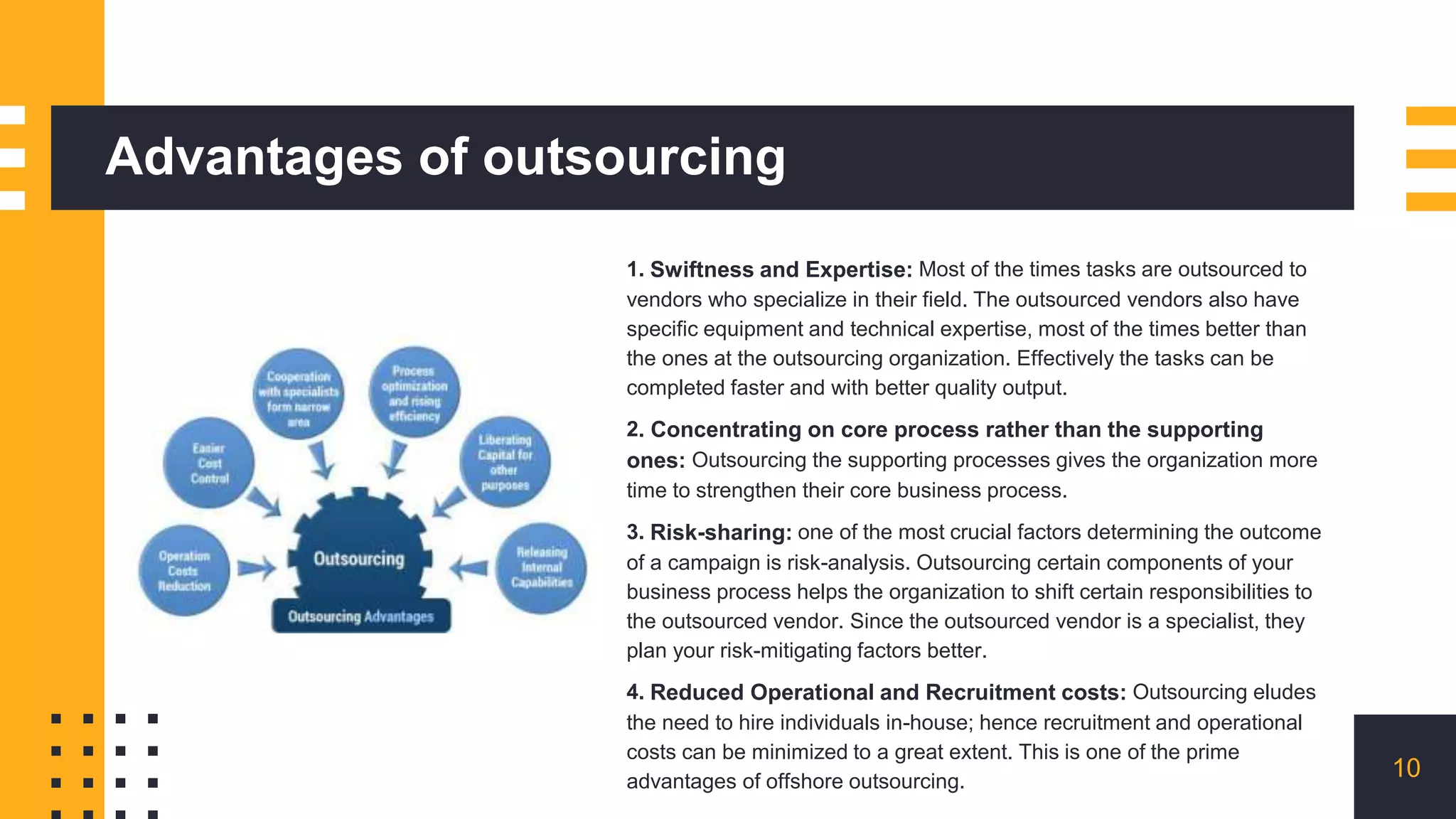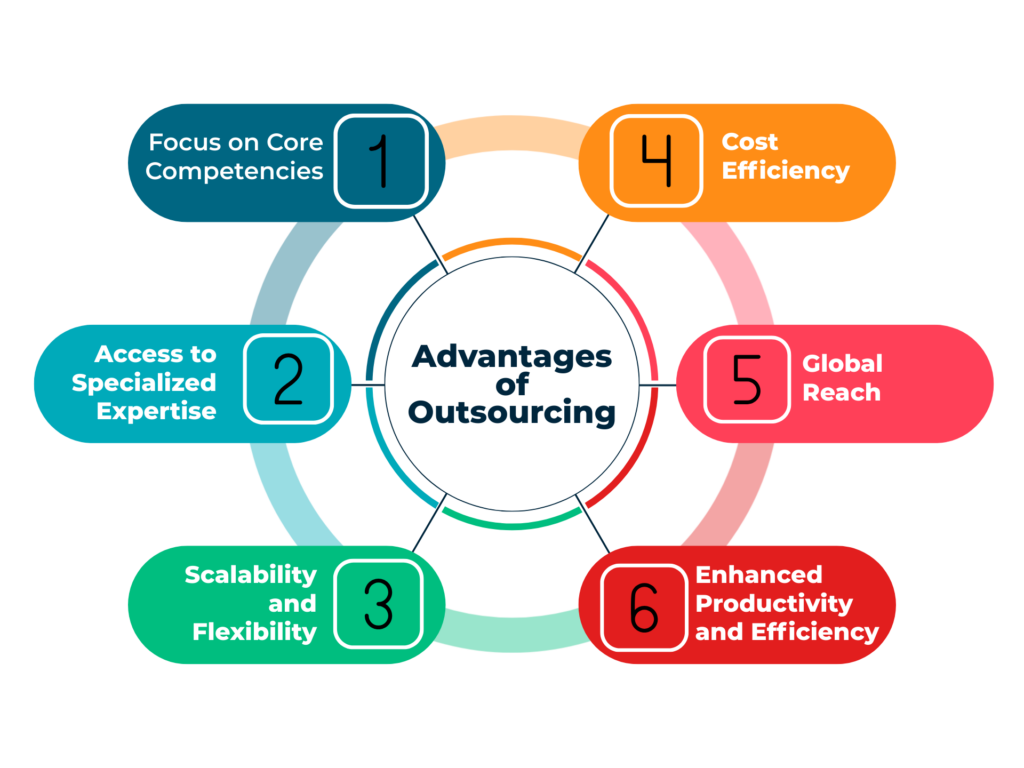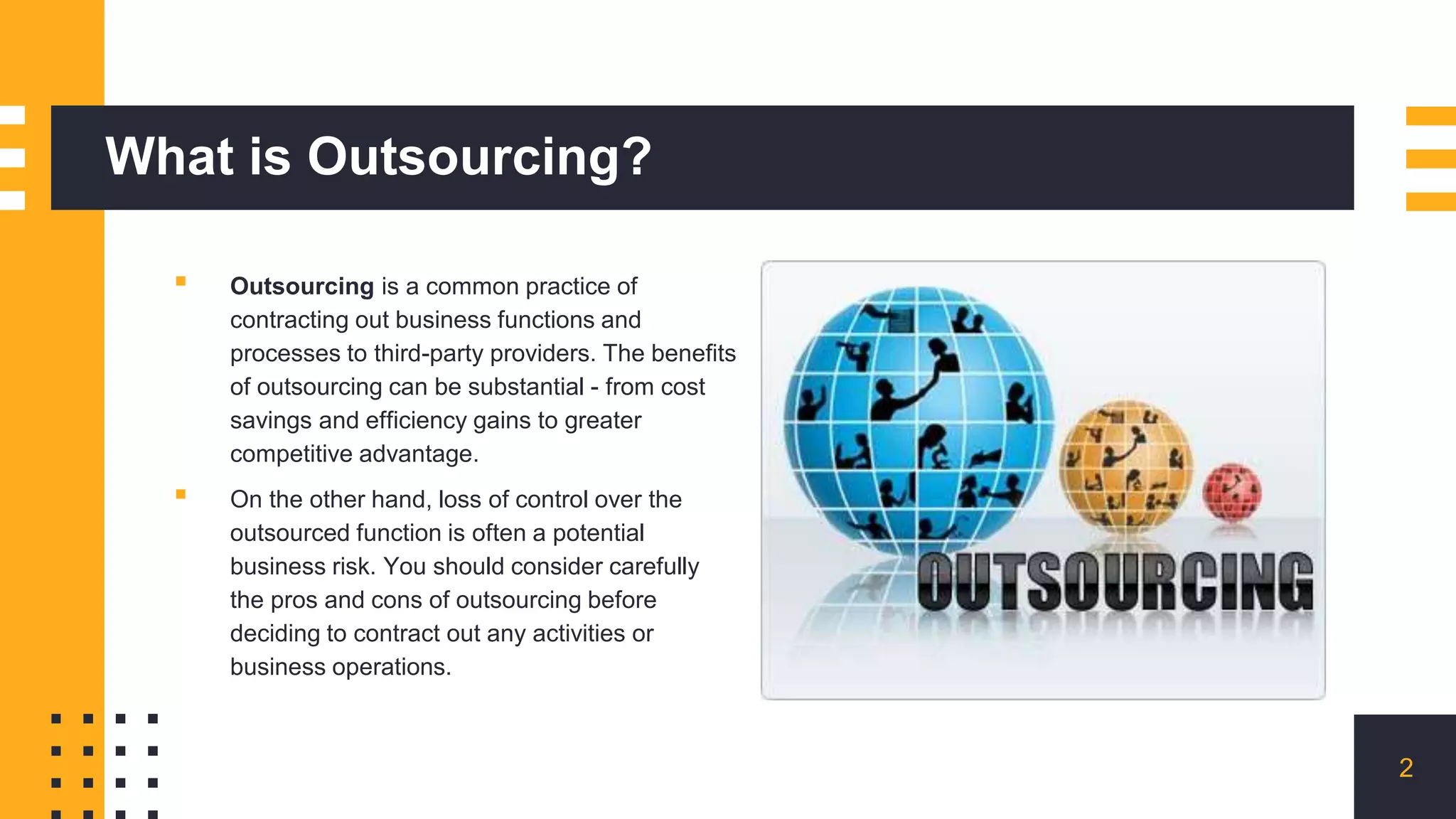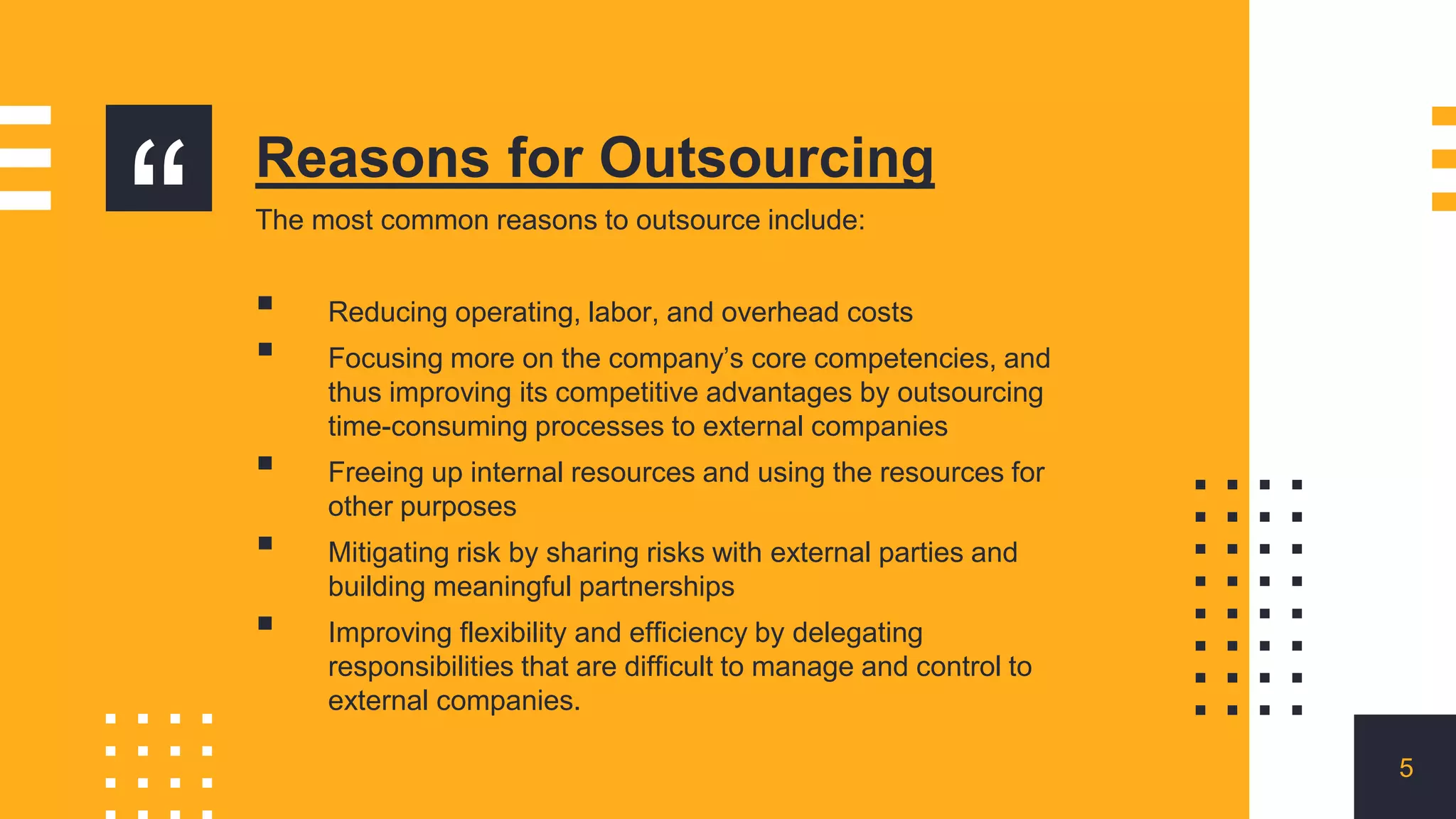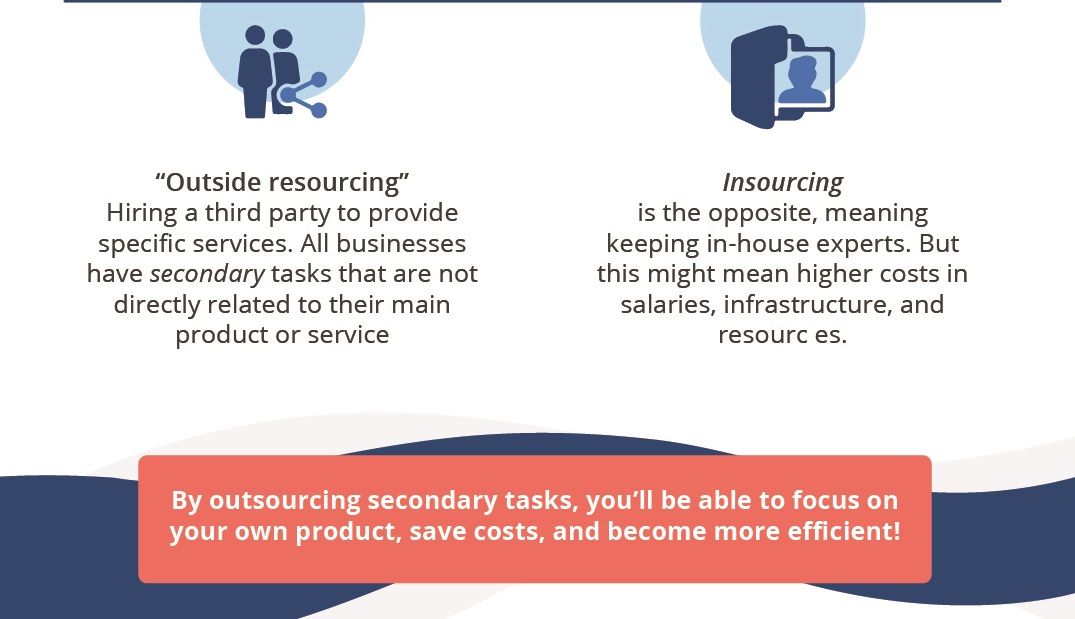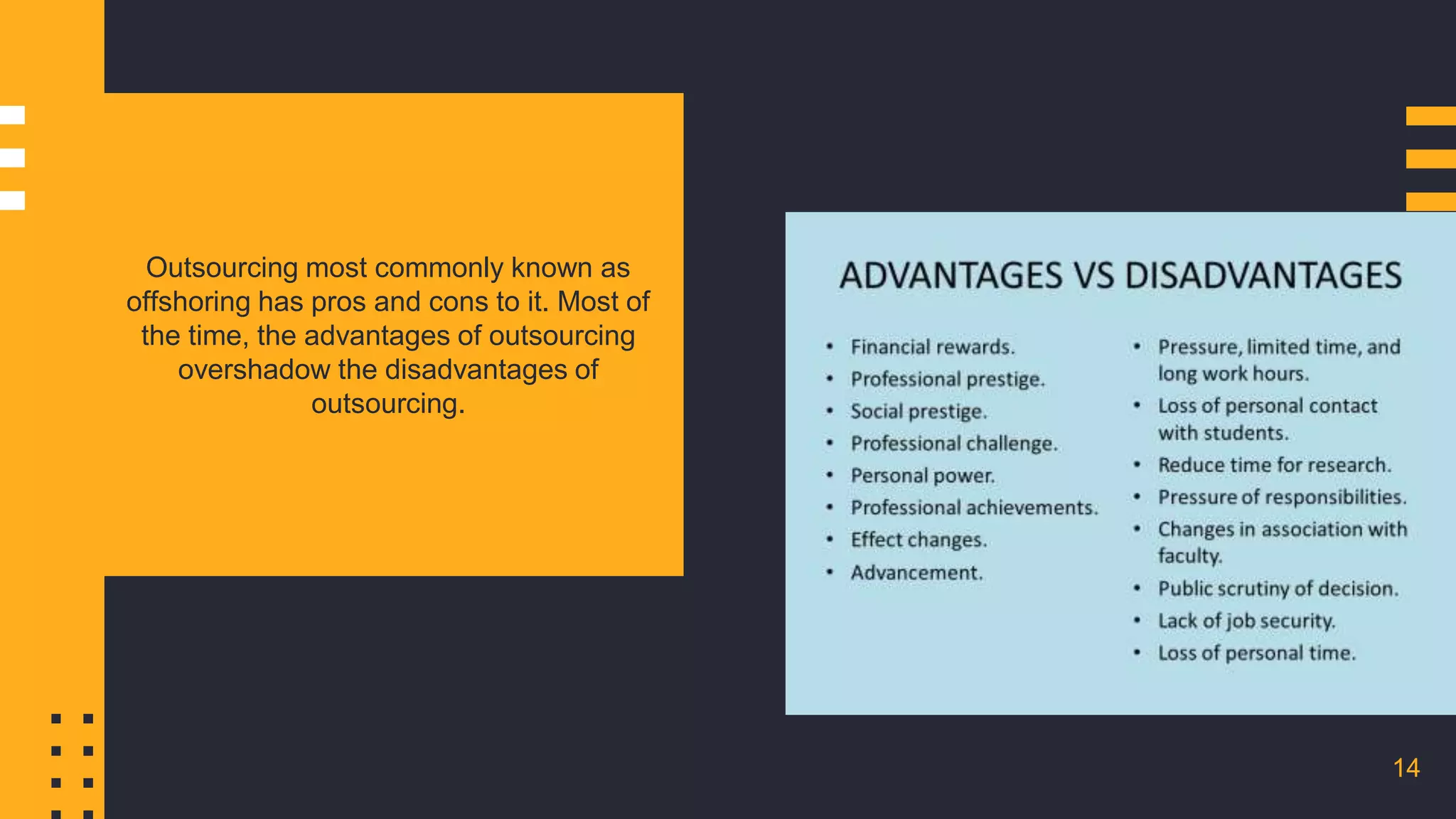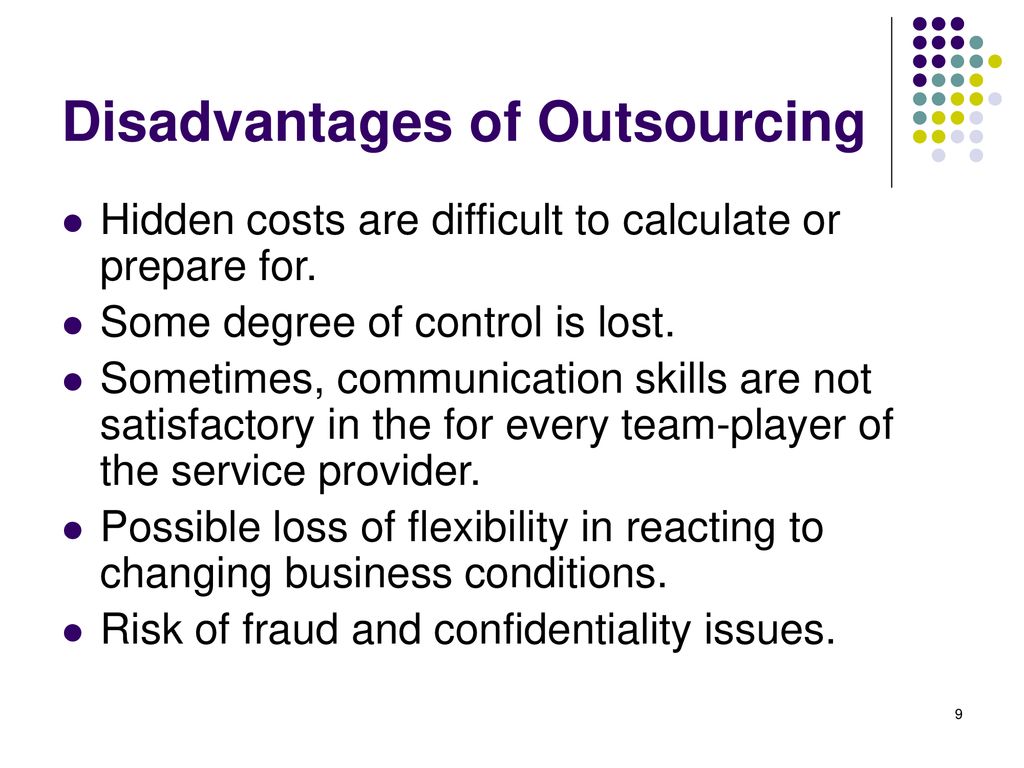What Are The Advantages And Disadvantages Of Outsourcing

Imagine a bustling small business owner, Sarah, juggling countless tasks – from crafting innovative product designs to managing customer inquiries and tackling complex accounting. The weight of these responsibilities threatens to stifle her creativity and hinder her company's growth. Sound familiar? Many businesses, big and small, face this dilemma, leading them to consider a powerful strategy: outsourcing.
At its core, outsourcing involves entrusting specific business functions or tasks to external providers. While it promises a pathway to efficiency and cost savings, it also presents potential pitfalls. Understanding the advantages and disadvantages of outsourcing is crucial for making informed decisions that can propel, rather than plague, your business.
The Alluring Advantages of Outsourcing
One of the most significant benefits of outsourcing is cost reduction. By leveraging the expertise and lower labor costs in other regions, businesses can significantly cut operational expenses. This is according to a Deloitte survey showing that cost reduction remains a primary driver for outsourcing decisions for many companies.
Outsourcing grants access to a wider pool of specialized skills and expertise. Instead of investing heavily in internal training and development, companies can tap into the knowledge of experienced professionals in various fields. This is particularly beneficial for tasks requiring niche skills, such as IT support, digital marketing, or legal services.
Focusing on core competencies becomes easier when routine tasks are outsourced. By delegating non-core activities, companies can free up valuable resources and personnel to concentrate on their strengths. This allows them to innovate, improve product quality, and enhance customer satisfaction.
Outsourcing often leads to increased efficiency and productivity. Specialized external providers have refined processes and optimized workflows that lead to faster turnaround times. According to data from Statista, companies often experience improved operational efficiency within the first year of implementing a successful outsourcing strategy.
Scalability is another key advantage. Outsourcing allows businesses to easily scale their operations up or down based on changing demands. This flexibility is particularly valuable for companies experiencing rapid growth or seasonal fluctuations.
Navigating the Potential Disadvantages
While outsourcing offers numerous benefits, it's crucial to be aware of the potential challenges. Loss of control is a significant concern. Businesses may have less direct oversight over outsourced tasks, potentially leading to inconsistencies in quality or communication.
Communication barriers can arise due to language differences, time zone variations, or cultural nuances. This can lead to misunderstandings, delays, and frustration. Establishing clear communication channels and protocols is essential to mitigate this risk.
Security risks are a valid concern when sharing sensitive data with external providers. It's crucial to choose reputable outsourcing partners with robust security measures. Businesses need to implement strong data protection policies and regularly audit their providers' security practices.
Hidden costs can sometimes emerge, such as contract negotiation fees, transition costs, or unexpected expenses. Thoroughly reviewing contracts and carefully considering all potential costs is crucial to avoiding unwelcome surprises.
Potential negative impact on employee morale is another factor to consider. Employees may fear job displacement or feel undervalued if key tasks are outsourced. Transparent communication and employee involvement in the outsourcing process can help alleviate these concerns.
The Rise of Strategic Outsourcing
Outsourcing is no longer just about cutting costs; it's evolving into a strategic tool for enhancing competitiveness and driving innovation. Companies are increasingly leveraging outsourcing to access specialized knowledge, improve agility, and accelerate growth.
The global outsourcing market is projected to continue growing in the coming years, driven by advancements in technology and increasing globalization. According to a report by Grand View Research, the global outsourcing market is expected to reach \$395.2 billion by 2027.
Technological advancements, such as cloud computing and automation, are further transforming the outsourcing landscape. These technologies enable seamless collaboration and data sharing, making outsourcing more efficient and accessible than ever before.
Making Informed Decisions
The decision to outsource should be carefully considered, weighing the potential advantages against the risks. A thorough assessment of your business needs, goals, and resources is essential. Evaluating potential outsourcing partners based on their expertise, experience, and security practices is also crucial.
Establishing clear contracts with defined service level agreements (SLAs) is paramount. These agreements should outline expectations, responsibilities, and performance metrics. Regular communication and monitoring are key to ensuring successful outsourcing partnerships.
Outsourcing, when implemented strategically, can be a powerful tool for driving business growth and innovation. Understanding both the advantages and disadvantages, and carefully planning for potential challenges, will pave the way for a successful and mutually beneficial partnership. Just ask Sarah – after carefully choosing her outsourcing partner, she was able to focus on developing new, innovative products, and her business is thriving.

